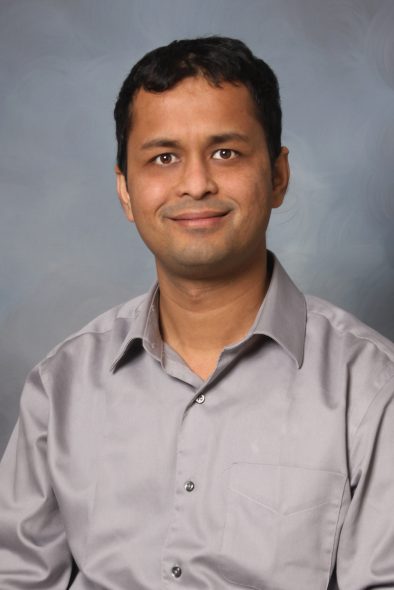Marquette University professor receives NSF CAREER grant for efficient spatial data analytics and mining
MILWAUKEE — Dr. Satish Puri, assistant professor of computer science in Marquette University’s Klingler College of Arts and Sciences, has received a CAREER grant from the National Science Foundation to do research on designing efficient algorithms for spatial data analytics that will serve as a crucial tool for solving a wide set of research problems from different scientific areas.
The project, “Communication-efficient and topology-aware designs for geo-spatial analytics on heterogeneous platforms” has an expected value of $511,236 over five years. The computational geometry algorithms chosen for this project are broadly applicable in a wide range of domains which make use of spatial data, including sociology, epidemiology, pathology, climate science and solar physics.
“We are living in an era of geospatial big data, which combined with advancements in data science, is enabling public and private organizations to gain new insights and build new capabilities,” Puri said. “Since communication cost in modern computing systems dominates computation cost, we are focusing on data movement operations in an algorithm for optimization on the (three processing units). These algorithms will be incorporated into publicly available mapping and analytics software and the new software libraries will be integrated with CyberGIS geospatial packages.”
Puri’s research will leverage high performance computing to speed up compute- and data-intensive workloads in domains that employ spatial data. The research will be guided by two principles: how to avoid communication in distributed memory spatial analytics using smart filters and how to do dynamic data-to-processor mapping while minimizing load imbalance and maximizing data locality.
This research project will also provide educational and training opportunities for students, most notable through invaluable training and experience for both undergraduate and graduate students. Puri will develop educational materials to be disseminate through educational workshops in both computing and spatial computing domains. Among those plans are the organization of “Spatial Analytics Workshops,” continued recruitment for the NSF Research Experiences for Undergraduates (REU) program, and a virtual data structure class to be attended by area high school students to engage and serve a diverse student body.
The Faculty Early Career Development (CAREER) Program is a foundation-wide activity that offers the National Science Foundation’s most prestigious awards in support of early-career faculty who have the potential to serve as academic role models in research and education and to lead advances in the mission of their department or organization. Activities pursued by early-career faculty should build a firm foundation for a lifetime of leadership in integrating education and research. NSF encourages submission of CAREER proposals from early-career faculty at all CAREER-eligible organizations and especially encourages women, members of underrepresented minority groups, and persons with disabilities to apply.
NOTE: This press release was submitted to Urban Milwaukee and was not written by an Urban Milwaukee writer. While it is believed to be reliable, Urban Milwaukee does not guarantee its accuracy or completeness.
Mentioned in This Press Release
Recent Press Releases by Marquette University
New Marquette Law School Poll national survey finds approval of U.S. Supreme Court edges upward, but 55% disapprove of the Court’s work
Oct 17th, 2024 by Marquette UniversityLarge majorities of both Republicans and Democrats favor strict ethics code, fixed terms for justices; majority of those polled say justices decide cases based more on politics than law
New Marquette Law School Poll national survey finds presidential race extremely tight, enthusiasm for voting high among both Democrats and Republicans but low among independents
Oct 16th, 2024 by Marquette UniversityPlease note: Complete Poll results and methodology information can be found online at law.marquette.edu/poll
























